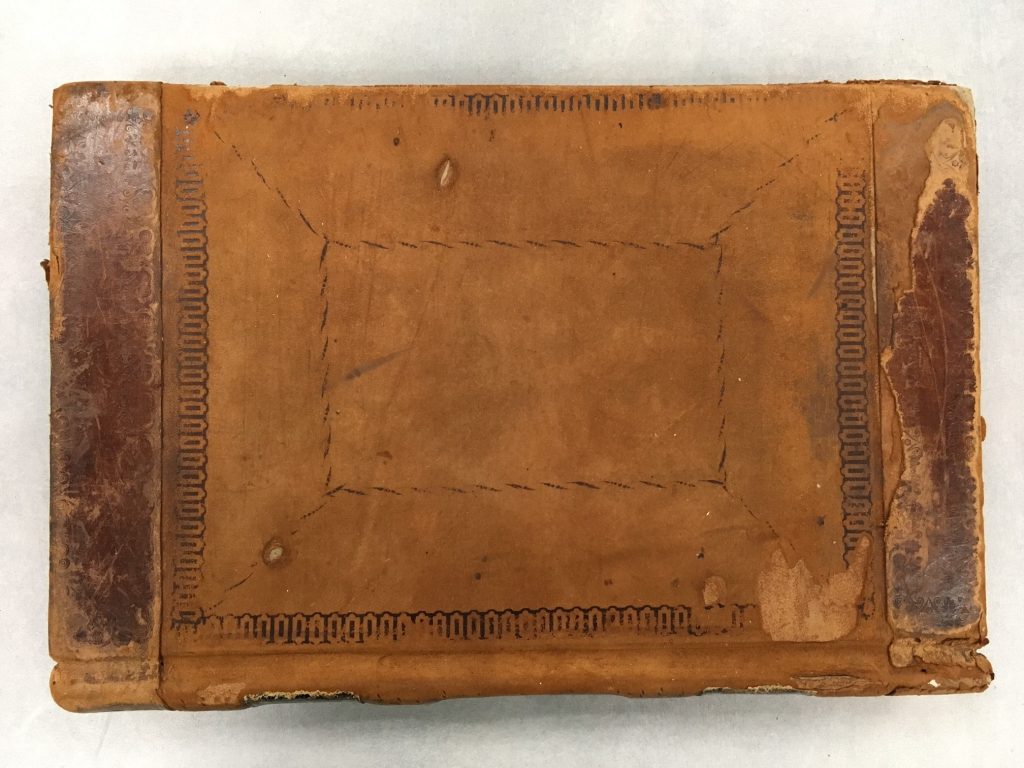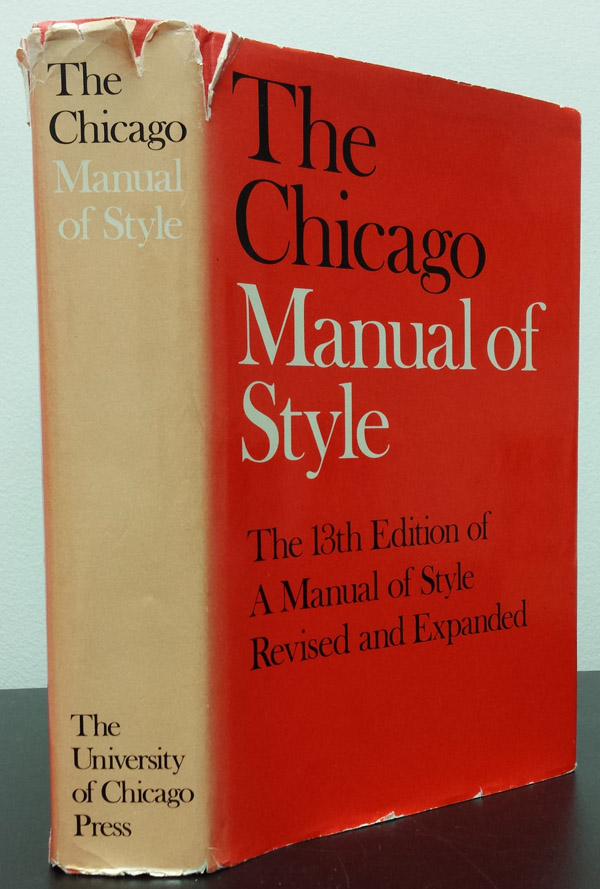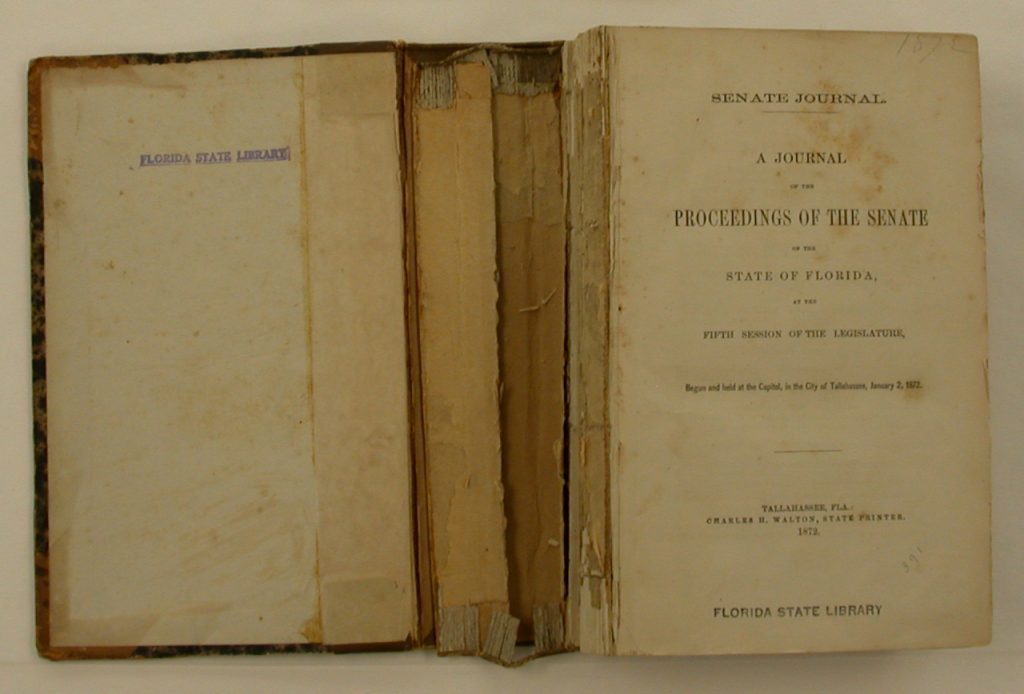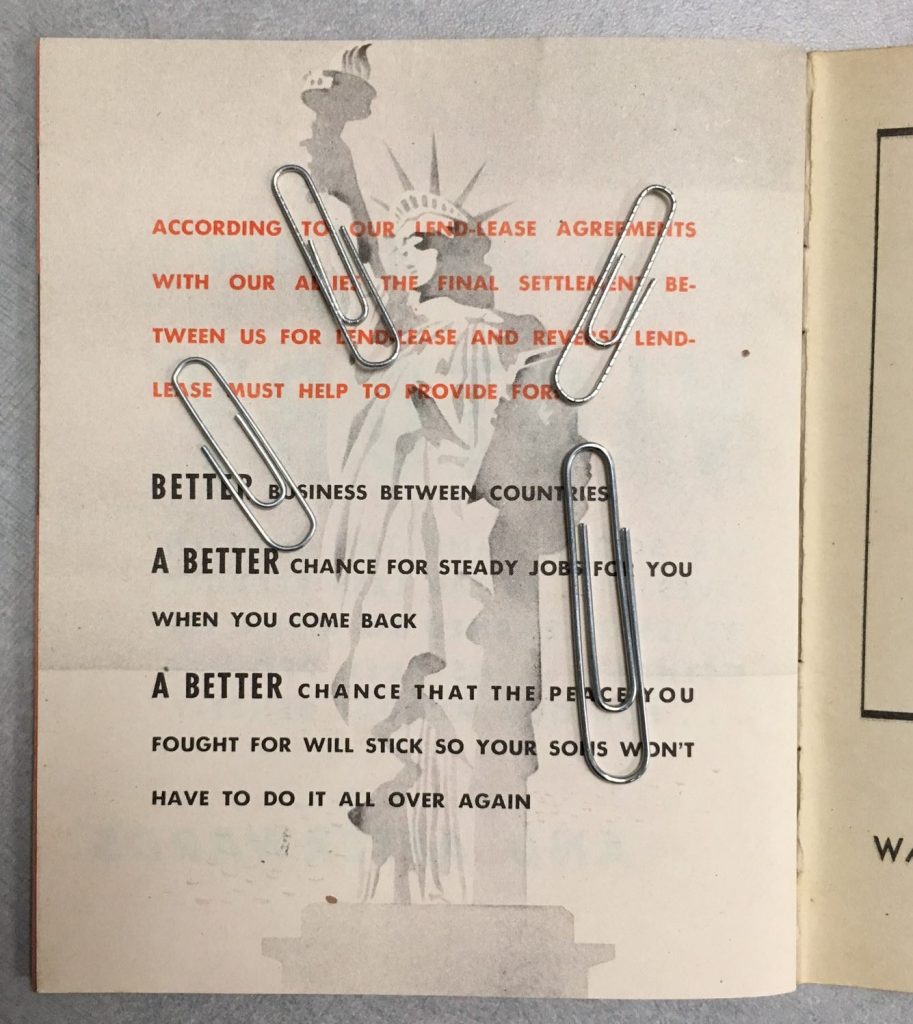Description of previous item
Description of next item
Preservation Tips from the Archives: Books
Published December 12, 2016 by Florida Memory
Preserving old family papers, books, newspapers, photographs, or other items can seem like a daunting task. However, there are things we can all do at home to protect our valuable records. Over the next few months, we will present a series of blogs providing tips on how you can help prolong the life of your valuable items for future generations. In the first post, we are focusing our attention on preserving books.
Avoid fluctuation in temperature and humidity
Changes in temperature and humidity cause paper to swell and contract and can induce harmful condensation. Also, high temperature and relative humidity levels accelerate destructive chemical reactions in paper and encourage mold growth. The ideal temperature for paper is 65 degrees Fahrenheit, with a relative humidity of 40 percent. While it is very difficult to maintain these conditions in Florida, storing your important papers in cool, dry, stable conditions will help ensure their longevity.
Covers of leather-bound books stored in unstable conditions may develop “red rot,” a degradation of the leather causing it to take on a reddish-brown peach-fuzz texture. Red rot cannot be reversed and easily stains anything it contacts. You can use a leather consolidant to arrest the degradation process and store the damaged book in a box or, if the book will be handled frequently, have it rebound.

Leather-bound books can develop red rot when left in unstable conditions.
Keep food and drink away from books
Not only can food and drink attract pests, but contact with food and drink can cause irreparable damage to books.
Avoid direct light sources
While any type of light can harm binding and pages, fluorescent light and sunlight both emit harmful ultraviolet rays that will severely fade paper and ink. Store books out of bright lighting and sunlight. If your books are on display, it is best to encase them behind UV-protective glass (do not let the item rest directly against the glass) and away from direct light sources.

Sunlight and fluorescent light can cause book covers to fade.
Shelve books properly
Shelve books vertically on metal or sealed wooden shelves. Store books upright to prevent leaning, which can distort covers and damage spines. Store oversize and heavy books flat or spine down. Storing books spine up causes the text block to pull down on and eventually destroy the spine. Do not pack books too tightly on the shelf and never store important books in an attic or basement.
Never pull a book from the shelf by its headcap (top of the spine). Do not force a book to open flat while reading or photocopying, as this will break its spine.

Text blocks can separate from their binding when too much pressure is placed on the spine.
Treat books carefully
It is necessary to treat books with great care and attention. Paperclips, clip bookmarks, adhesive notes, pencils and other objects can damage pages or put pressure on the spine of a closed book. Never press flowers or place newspaper clippings in a book because they will damage the book’s pages. Flat bookmarks are recommended to mark a page, rather than folding the corner of the page to mark your spot. Also, using a book as a writing surface will leave impressions on the cover. Never write on or in a book that is not your own. Pressure-sensitive tape, glue, and other adhesives should not be used to repair a book because they will likely cause more damage.

Avoid using paper clips in books because they can damage pages.
Following these basic tips will help you ensure the longevity your important books. If you have specific questions about preserving your books, contact the State Archives at archives@dos.myflorida.com for more information.
Cite This Article
Chicago Manual of Style
(17th Edition)Florida Memory. "Preservation Tips from the Archives: Books." Floridiana, 2016. https://www.floridamemory.com/items/show/324847.
MLA
(9th Edition)Florida Memory. "Preservation Tips from the Archives: Books." Floridiana, 2016, https://www.floridamemory.com/items/show/324847. Accessed February 13, 2026.
APA
(7th Edition)Florida Memory. (2016, December 12). Preservation Tips from the Archives: Books. Floridiana. Retrieved from https://www.floridamemory.com/items/show/324847

 Listen: The Folk Program
Listen: The Folk Program